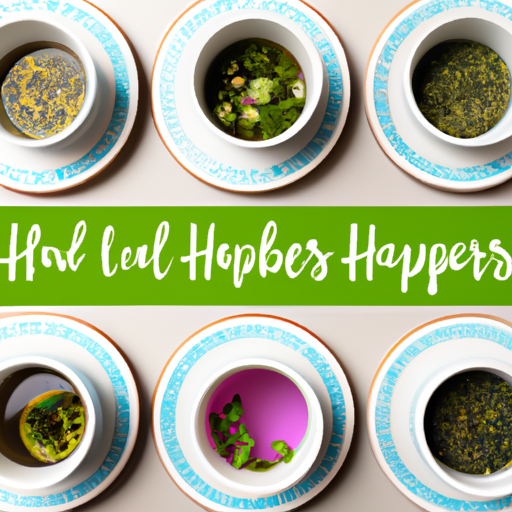In keeping with the age-old adage, “Mother Nature provides a solution for every sickness.” When faced with calming a persistent cough, a variety of herbal teas can provide relief and solace.
From the warming and invigorating essence of ginger tea to the cooling and refreshing properties of peppermint tea, nature’s medicine cabinet is brimming with options.
In this article, I will guide you through a holistic journey of herbal teas that have been proven to ease coughs and promote respiratory health. Each tea is carefully selected based on its evidence-based benefits and natural healing properties.
So, if you find yourself battling a persistent cough, join me as we explore the soothing powers of chamomile, the invigorating qualities of eucalyptus, and the comforting effects of lemon and honey.
Let’s embrace the healing touch of Mother Nature and discover the perfect herbal tea to bring relief to your cough.
Key Takeaways
- Ginger tea is effective for reducing throat irritation and cough symptoms due to its anti-inflammatory properties.
- Peppermint tea helps alleviate coughing by relaxing respiratory muscles, thanks to the presence of menthol.
- Chamomile tea is great for cough relief as it has relaxation and sleep-inducing properties.
- Eucalyptus tea is beneficial for cough relief as it has antimicrobial and anti-inflammatory properties, clears congestion, and reduces coughing.
Ginger Tea
Ginger tea is a fantastic choice to soothe your cough and provide comforting relief. Not only does it taste delicious, but it also offers numerous benefits for digestion. Ginger has been used for centuries as a natural remedy for various ailments, including coughs and colds. It has anti-inflammatory properties that can help reduce irritation in the throat and ease cough symptoms.
To make ginger tea at home, start by peeling and slicing fresh ginger root. Add the ginger slices to a pot of boiling water and let it simmer for about 10 minutes. You can also add a squeeze of lemon juice and a teaspoon of honey for added flavor and extra soothing properties. Once the tea is ready, strain it into a cup and enjoy it warm.
Peppermint tea is another great option to alleviate cough symptoms, thanks to its menthol content. It can help to relax the muscles in the respiratory tract, providing relief from coughing. So, let’s dive into the benefits of peppermint tea and how to make it at home.
Peppermint Tea
Relieve your throat and soothe your cough with a refreshing cup of peppermint tea. Peppermint tea isn’t just delicious and invigorating, but it also offers numerous health benefits. This herbal infusion contains menthol, which’s been shown to have a soothing effect on the throat and can help alleviate cough symptoms.
Additionally, peppermint tea has anti-inflammatory properties that can help reduce irritation and inflammation in the airways, making it an excellent choice for respiratory issues.
Making peppermint tea at home is incredibly simple. All you need is fresh or dried peppermint leaves, hot water, and a teapot or infuser. Start by boiling water and pouring it over the peppermint leaves in a teapot or infuser. Let it steep for about 5 minutes to allow the flavors and healthful compounds to infuse into the water. Then, strain the leaves and enjoy your homemade peppermint tea.
Transitioning into the subsequent section about chamomile tea, it’s worth mentioning that chamomile tea is another herbal remedy that can provide relief for coughs and sore throats.
Chamomile Tea
Transitioning to the soothing benefits of chamomile, this delicate infusion offers a comforting remedy for irritated throats and nagging coughs. Chamomile tea is renowned for its relaxation and sleep-inducing properties, making it an excellent choice for those seeking relief from cough-related discomfort. The gentle nature of chamomile helps to calm the throat and reduce inflammation, providing much-needed relief.
To make a soothing chamomile tea blend for stress relief, start by combining dried chamomile flowers with a pinch of dried lavender and a teaspoon of honey. The combination of chamomile and lavender creates a calming effect, promoting relaxation and reducing stress levels. Steep the mixture in hot water for about five minutes, allowing the flavors to infuse. Sip on this warming blend in the evening, allowing its natural sedative properties to promote a restful night’s sleep.
As we transition to the discussion on eucalyptus tea, it’s important to note that chamomile tea can be a gentle and effective remedy for coughs and throat irritations.
Eucalyptus Tea
With its refreshing aroma and invigorating taste, eucalyptus tea provides a soothing remedy for respiratory discomfort. This herbal tea is derived from the leaves of the eucalyptus tree and has been used for centuries to alleviate coughs and cold symptoms. Here are four reasons why eucalyptus tea is an excellent choice for cough relief:
-
Benefits of using eucalyptus oil for cough relief: Eucalyptus oil, the primary component of eucalyptus tea, contains compounds that have antimicrobial and anti-inflammatory properties. These properties help clear congestion and reduce coughing, providing relief from respiratory ailments.
-
Natural expectorant: Eucalyptus tea acts as a natural expectorant, helping to loosen and expel mucus from the respiratory tract. By promoting healthy mucus production, it aids in relieving coughs and congestion.
-
Soothing respiratory discomfort: The warm steam from eucalyptus tea can help soothe irritated airways, reducing coughing fits and easing breathing difficulties.
-
How to make eucalyptus tea for coughs: To make eucalyptus tea, steep 1-2 teaspoons of dried eucalyptus leaves in a cup of hot water for 10-15 minutes. Add honey or lemon for additional soothing effects.
As we transition to the next section about thyme tea, another herbal remedy for coughs, let’s explore its unique properties.
Thyme Tea
Thyme tea is a flavorful and aromatic option that offers soothing benefits for respiratory discomfort. This herbal beverage has been used for centuries to alleviate coughs and congestion. The health benefits of thyme tea are numerous. It contains compounds that have antimicrobial and expectorant properties, which can help to loosen mucus and ease coughing. Thyme also has anti-inflammatory properties that can reduce inflammation in the respiratory tract, providing relief for sore throats and irritated airways.
Making thyme tea at home is simple and requires just a few ingredients. Start by boiling water and adding a handful of fresh thyme leaves or a teaspoon of dried thyme to a teapot or cup. Let it steep for about 10 minutes to extract the beneficial compounds. You can add a squeeze of lemon or a teaspoon of honey for added flavor and soothing effects.
Thyme tea is a natural remedy that can provide relief from coughs and respiratory discomfort. Its health benefits make it a great option for those seeking a holistic approach to wellness.
Transitioning into the next section, licorice root tea is another herbal tea that can offer similar soothing properties for respiratory issues.
Licorice Root Tea
Licorice root tea, with its sweet and soothing flavor, envelops your senses like a warm embrace on a chilly winter evening. This herbal infusion has been cherished for centuries due to its numerous health benefits. Incorporating licorice root tea into your routine can provide relief from a nagging cough and promote overall well-being.
Here are five reasons why you should try licorice root tea:
-
Soothes cough and throat irritation: Licorice root contains compounds that can help calm a cough and alleviate throat irritation, providing much-needed relief.
-
Supports respiratory health: The natural expectorant properties of licorice root can help loosen mucus and phlegm, making it easier to expel and promoting clearer airways.
-
Boosts the immune system: Licorice root is known for its immune-boosting properties, helping to strengthen your body’s defenses and ward off respiratory infections.
-
Anti-inflammatory effects: Licorice root contains anti-inflammatory compounds that can help reduce inflammation in the respiratory tract, providing relief from cough symptoms.
-
Nourishes the body: Licorice root tea is rich in antioxidants and nutrients that can support overall health and well-being.
While licorice root tea offers numerous benefits, it’s important to note that excessive consumption may lead to side effects such as high blood pressure and low potassium levels. As with any herbal remedy, it’s best to consult with a healthcare professional before incorporating licorice root tea into your routine.
Now, let’s explore the next herbal remedy for cough relief: marshmallow root tea.
Marshmallow Root Tea
Marshmallow Root Tea brings a soothing sensation to the throat, providing comfort during coughing fits. This herbal tea is known for its numerous health benefits. Marshmallow root contains mucilage, a substance that forms a protective layer on the throat, reducing irritation and alleviating cough symptoms. It also acts as an expectorant, helping to loosen and expel mucus, which can further relieve coughing. Additionally, marshmallow root is believed to have anti-inflammatory properties, which can help reduce swelling and irritation in the throat.
To make marshmallow root tea at home, you’ll need dried marshmallow root and water. Start by boiling a cup of water and adding a tablespoon of dried marshmallow root. Let it steep for about 10 minutes, allowing the beneficial compounds to infuse into the water. Strain the mixture and enjoy the warm, soothing tea.
Transitioning into the subsequent section about sage tea, it’s important to explore other herbal remedies for cough relief. Sage tea, another popular herbal remedy, has been used for centuries to soothe sore throats and alleviate coughing. Let’s delve into the benefits of sage tea and how to prepare it at home.
Sage Tea
When it comes to finding a cozy and comforting drink that can help soothe your throat and ease coughing, sage tea is an absolute game-changer. Sage has been used for centuries for its medicinal properties, and its benefits for respiratory health are well-documented. This aromatic herb contains compounds that have anti-inflammatory and antimicrobial properties, making it an excellent choice for relieving cough and congestion.
Drinking sage tea can help reduce inflammation in the throat and airways, soothing irritation and promoting easier breathing. To make sage tea for cough relief, simply steep a teaspoon of dried sage leaves in a cup of hot water for about 10 minutes. You can add a teaspoon of honey to sweeten the tea and enhance its soothing effects. Honey is known for its antibacterial properties and can provide additional relief for a sore throat. Squeeze in some fresh lemon juice for added vitamin C, which can support your immune system and help fight off infections.
Transitioning into the subsequent section about lemon and honey tea, combining the benefits of sage tea with the soothing properties of lemon and honey creates a powerful concoction for cough relief.
Lemon and Honey Tea
Combining the soothing properties of lemon and honey, this powerful concoction of warm, citrusy goodness is a delicious way to alleviate cough and congestion, even for those who might be skeptical of herbal remedies.
Lemon is packed with vitamin C, which helps boost the immune system and reduce the severity of cough symptoms. Honey, on the other hand, has antimicrobial properties that can help soothe a sore throat and suppress coughing.
To make the perfect lemon and honey tea for cough, start by boiling water and squeezing the juice of half a lemon into a cup. Add a tablespoon of honey and mix well until it dissolves completely. Sip on this comforting blend while it’s still warm to experience its full benefits.
To enhance the flavor and effectiveness of your lemon and honey tea, you can add a few additional ingredients. Consider adding a pinch of turmeric for its anti-inflammatory properties or a slice of ginger for its throat-soothing effects. These natural ingredients work together harmoniously to provide relief from cough and congestion.
Transitioning into the next section about turmeric tea, let’s explore another herbal remedy that can help alleviate cough symptoms.
Turmeric Tea
Turmeric tea, with its vibrant golden hue and warm, earthy aroma, offers a natural remedy to soothe respiratory discomfort. But its benefits go beyond just that. This ancient spice has been used for centuries in traditional medicine for its numerous health-promoting properties.
Turmeric contains a compound called curcumin, which has powerful anti-inflammatory and antioxidant effects. Drinking turmeric tea regularly can support overall health and well-being. It can help boost the immune system, reduce inflammation, and promote healthy digestion. Additionally, turmeric has been shown to have potential anticancer properties and may help protect against chronic diseases such as heart disease and diabetes.
Making turmeric tea at home is simple. Start by bringing water to a boil, then add a teaspoon of ground turmeric and let it simmer for about 10 minutes. Strain the tea and add a squeeze of lemon or a teaspoon of honey to enhance the flavor. You can also add a pinch of black pepper to increase the absorption of curcumin.
Incorporating turmeric tea into your daily routine can be a delicious and natural way to support your respiratory health and overall well-being. So why not give it a try? Your body will thank you.
Frequently Asked Questions
Can herbal teas completely cure a cough?
Herbal teas can be beneficial in alleviating cough symptoms due to their natural properties. While they can provide relief, it’s important to note that herbal teas alone may not completely cure a cough. However, they can complement other natural remedies and lifestyle changes for a holistic approach.
Incorporating herbal teas into your routine can help soothe the throat, reduce inflammation, and support the body’s immune system. Always consult with a healthcare professional for personalized advice.
Are there any potential side effects of drinking herbal teas for cough relief?
When it comes to drinking herbal teas for cough relief, it’s important to be aware of potential risks and common side effects. While herbal teas are generally considered safe, some individuals may experience allergic reactions or digestive issues.
It’s always a good idea to consult with a healthcare professional before starting any herbal remedy. Remember, natural remedies can be a helpful addition to a holistic approach to cough relief, but they shouldn’t replace medical advice or treatment.
How long does it take for herbal teas to alleviate cough symptoms?
The efficacy of different herbal teas for cough relief can vary depending on various factors. These factors include the severity of the cough, the individual’s overall health, and the specific herbal tea being used.
While some people may experience relief within a few days of regularly consuming herbal teas, others may take longer. It’s important to remember that herbal remedies work holistically and naturally, and their effectiveness may vary from person to person.
Can herbal teas be consumed by children or pregnant women to relieve a cough?
Herbal teas can be a safe and effective way to relieve a cough in children and pregnant women. However, it’s important to choose the right herbal teas that are suitable for their specific needs.
For children, gentle herbs like chamomile and lemon balm can be soothing and calming.
Pregnant women can benefit from herbal teas like ginger and peppermint, which can help alleviate cough symptoms without posing any harm to the baby.
As always, it’s best to consult with a healthcare professional before incorporating herbal teas into their routine.
Are there any precautions or contraindications when using herbal teas for cough relief?
When it comes to using herbal teas for cough relief, it’s important to be aware of any precautions or contraindications. It’s always wise to consult with a healthcare professional before using any herbal remedies, especially if you’re pregnant or have any underlying health conditions. Some herbs may interact with medications or have potential side effects. It’s essential to prioritize safety and gather evidence-based information before incorporating herbal teas into your cough relief routine.
Conclusion
In conclusion, when it comes to finding herbal teas that are good for a cough, there are plenty of options to choose from. Whether you prefer the soothing warmth of ginger tea or the refreshing coolness of peppermint tea, these natural remedies offer a holistic approach to healing.
With evidence-based benefits, such as reducing inflammation and soothing irritated throats, these herbal teas provide a natural and effective way to alleviate cough symptoms. So, why not give them a try and experience the comforting power of nature’s remedies? Your cough will thank you.










